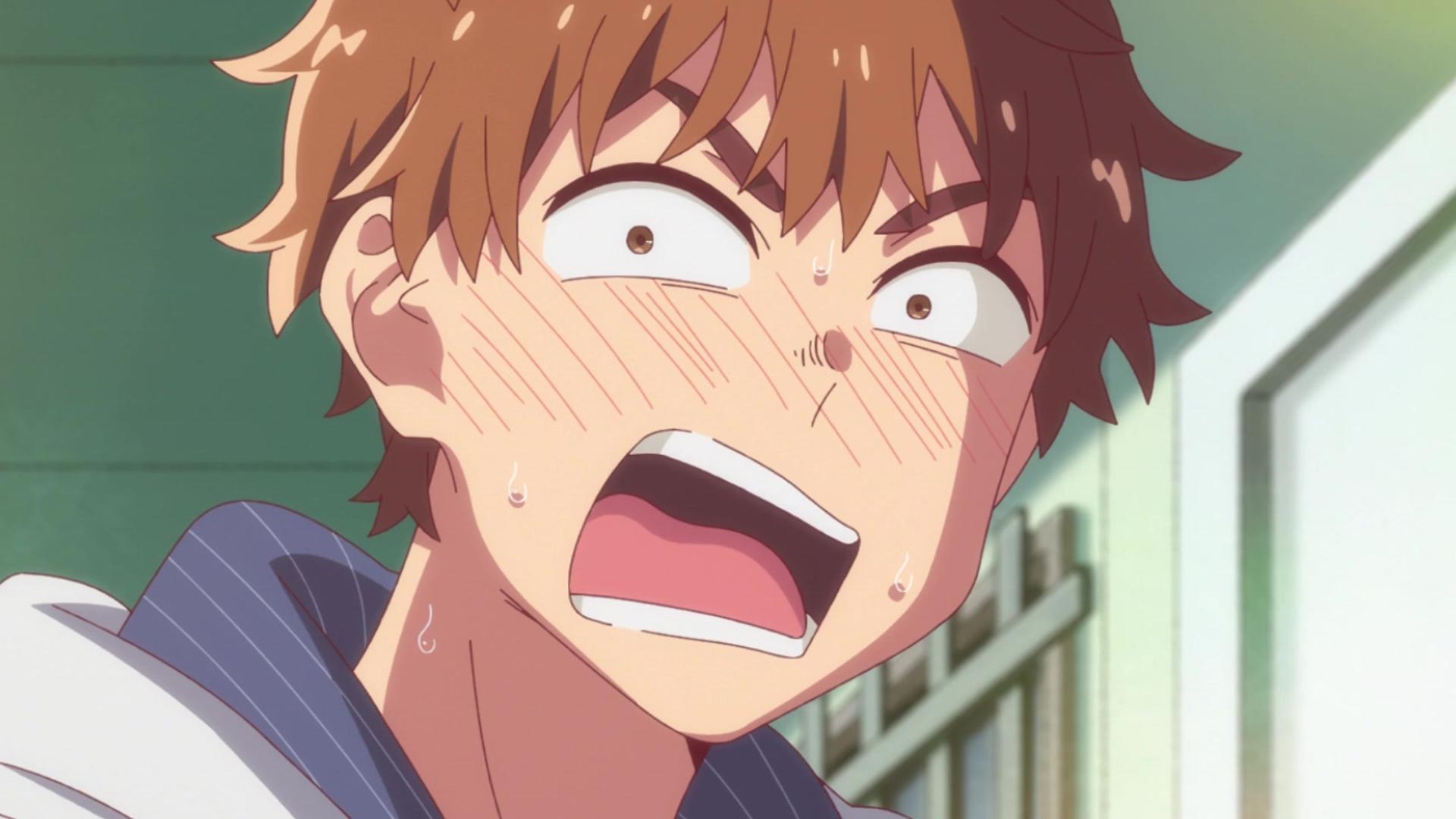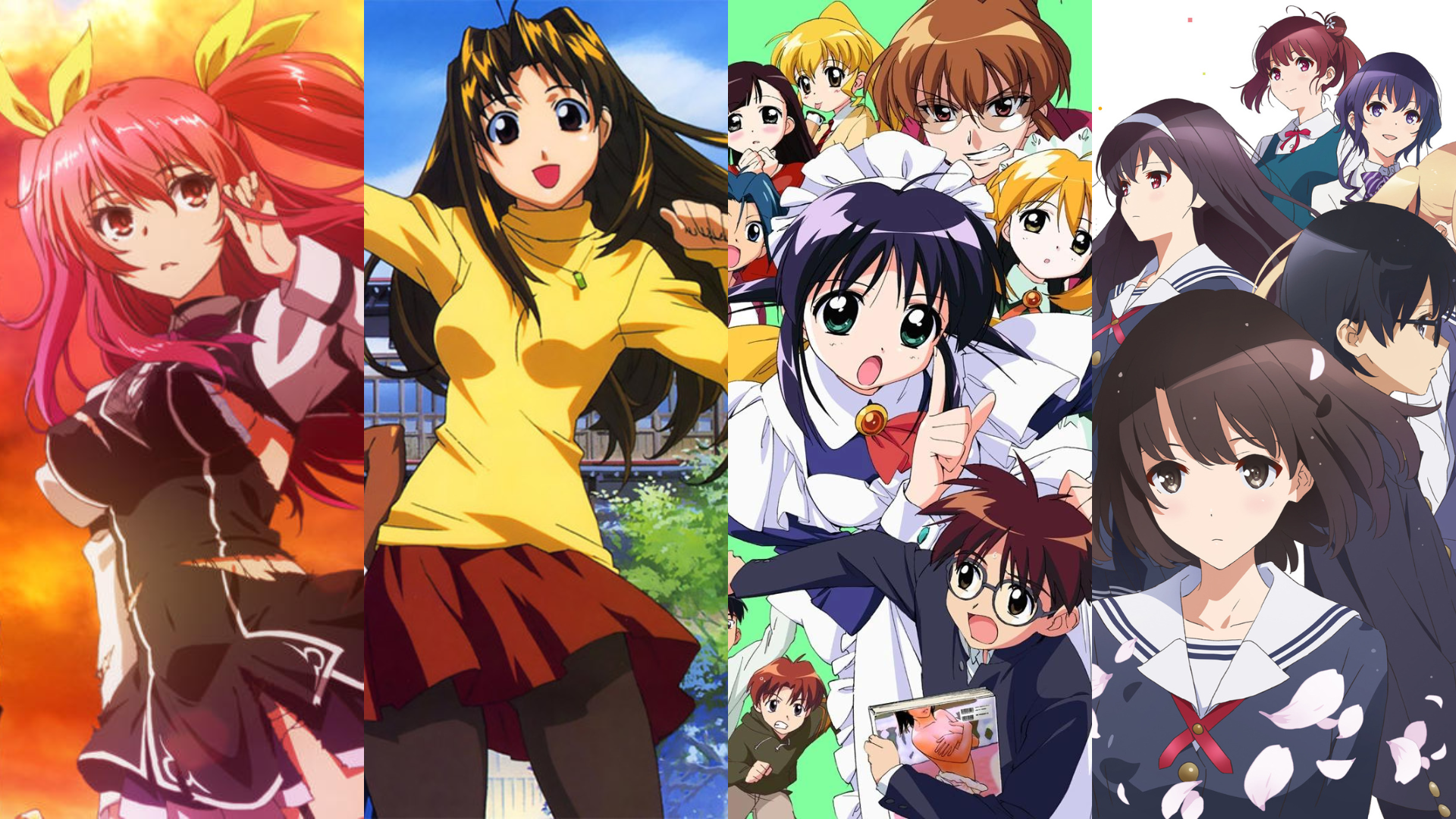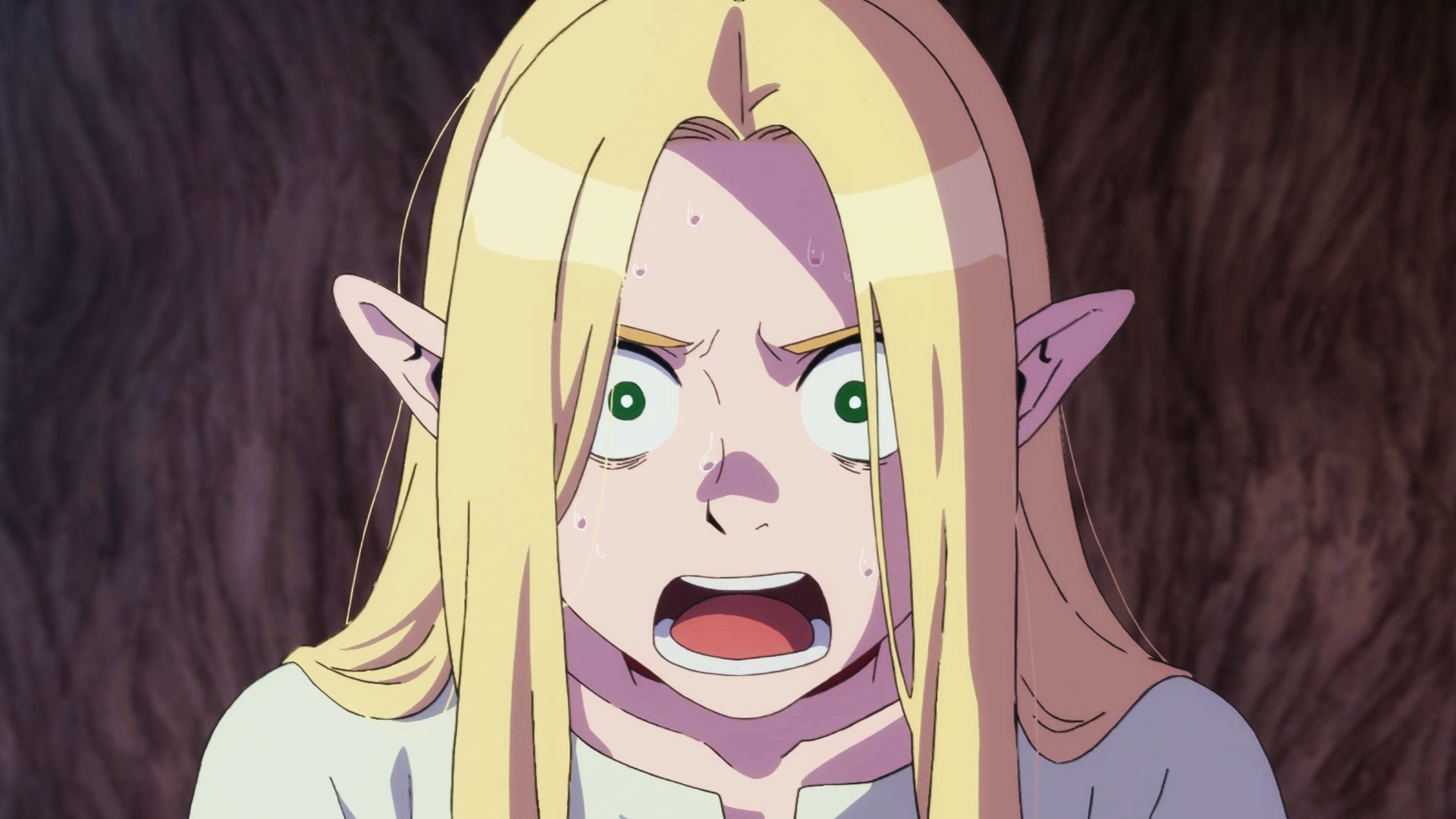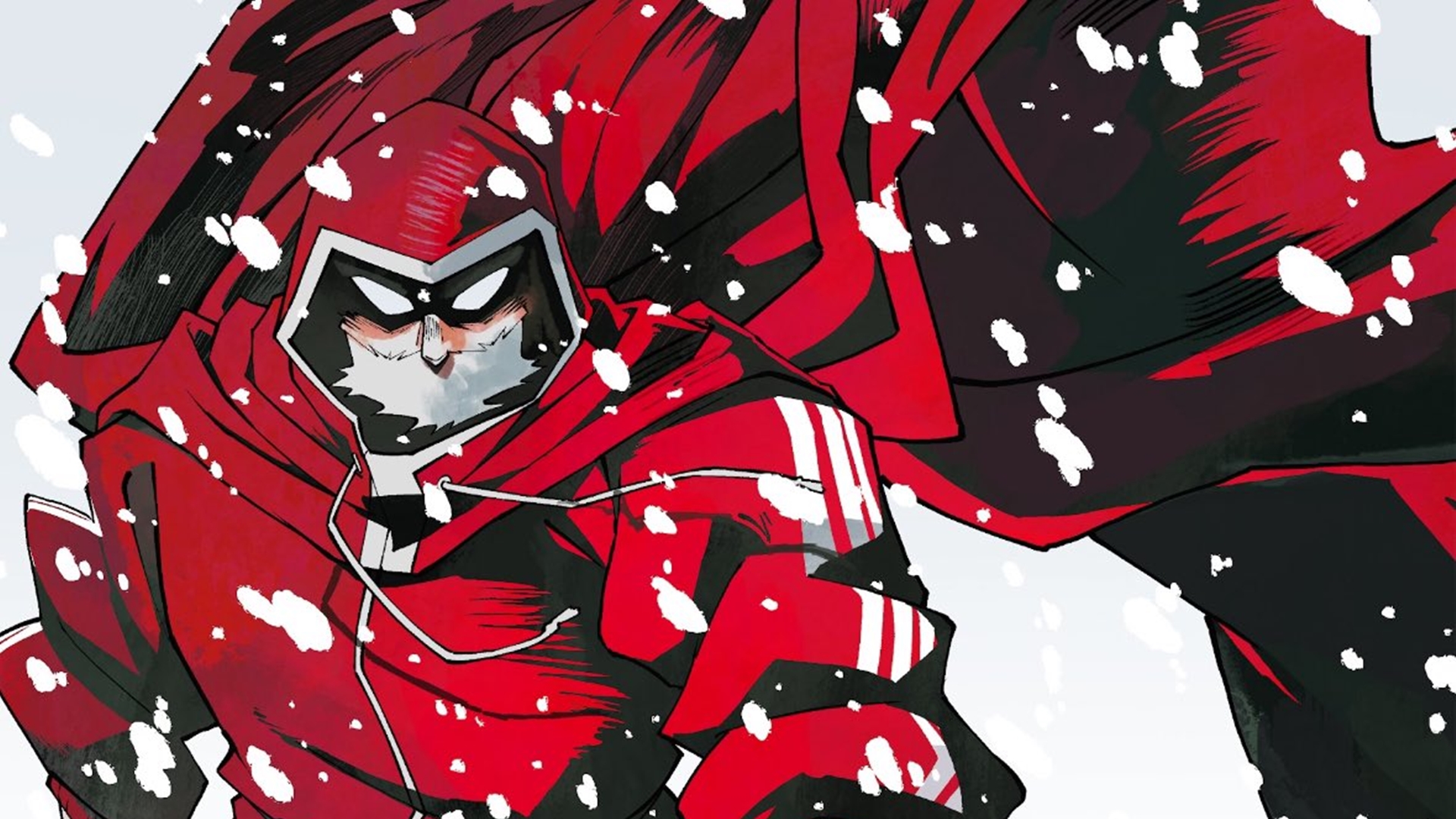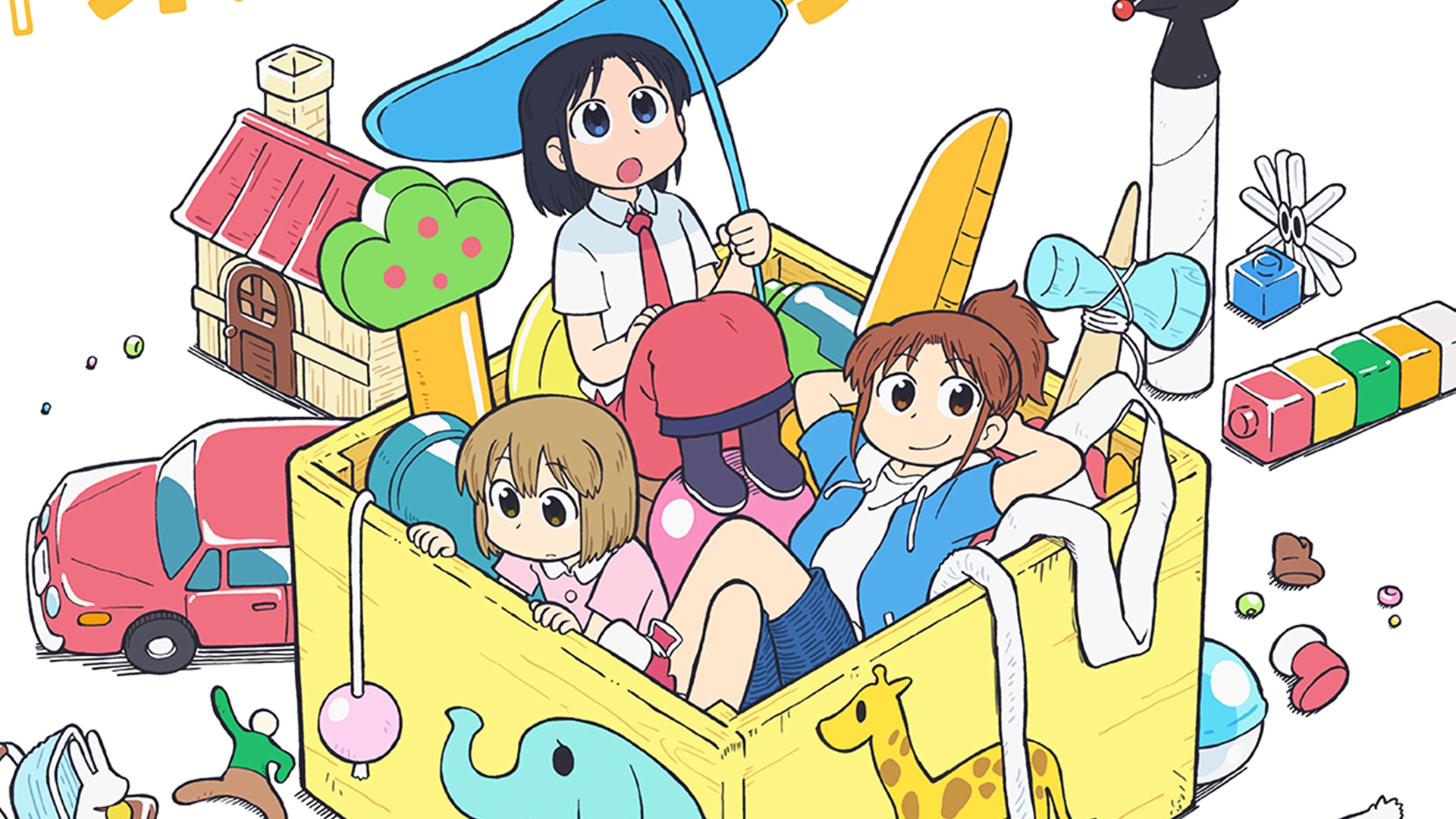Articles and Lists
12 Anime Movies That Will Change Your Worldview
Advertisement
Anime films go beyond simple entertainment, delving into the deeper aspects of life and its meaning.
They offer more than just thrilling adventures and exciting plots; these films present stories that make viewers think critically and reflect on their own experiences.
The films' concise format allows them to explore deep themes in a focused and meaningful way, providing a more immersive and introspective experience.
These films often communicate their messages through subtle and indirect means, encouraging audiences to interpret and understand the stories on their own terms.
This approach invites viewers to engage intellectually and emotionally, challenging their perceptions and inviting them to discover the layers of meaning within the story.
Each film, therefore, becomes a unique journey of personal discovery and insight. Covering a wide range of philosophical themes, from self-discovery and personal growth to social justice and a broader understanding of life’s purpose, these anime films offer significant intellectual stimulation.
They inspire viewers to think deeply and connect with the hidden messages in stories, making the viewing experience not only enjoyable but deeply rewarding.
1) The End of Evangelion
Hideaki Anno's Neon Genesis Evangelion is known as one of the most thought-provoking mecha anime.
It deftly breaks the usual heroic clichés of the genre and deeply explores the relationship between self and others, securing its place in anime history.
Among all the parts of Shinji Ikari's story, The End of Evangelion is the most surreal and apocalyptic.
She forces Shinji to face the devastating consequences of Instrumentality and confront his own deep-rooted traumas and losses.

Even as humanity faces annihilation, Shinji's personal struggles take center stage, highlighting his inner turmoil.
The film's open ending leaves room for viewers to interpret the fate of the world and the lessons of Shinji's journey.
This encourages fans to reflect on their transformation and the story's overarching themes, making The End of Evangelion an immersive and deeply personal experience.
2) Time of Eve
Time of Eve (or Eve no Jikan) is set in a future where androids are widespread and primarily serve humans.
The story centers on Rikuo Sakisaka, a human who frequents a cafe called The Time of Eve, where humans and androids interact without revealing their true nature.
The series explores philosophical themes within a science fiction setting, exploring how androids are perceived and treated, the concept of personal identity, and what it means to be human.

He also references Isaac Asimov's Three Laws of Robotics, adding depth to his examination of human-android relationships.
For those interested in the intersection of technology and ethics, Time of Eve* provides a compelling analysis.
It carefully investigates the dynamics between humans and androids, leading viewers to reflect on questions of conscience and morality.
3) Ghost In The Shell
Ghost in the Shell, by Mamoru Oshii, is a groundbreaking film in the cyberpunk genre, although it differs from the original manga by Masamune Shirow.
The film is known for its cutting-edge animation, but its most significant achievements lie in its engaging story and deep character exploration.
Set in a future where cybernetic enhancements are commonplace, the film explores deep topics such as memory, consciousness and personal identity.

It tackles complex issues such as artificial intelligence, the concept of gender and the instinct for self-preservation, receiving praise for its insightful treatment of these themes.
Both Ghost in the Shell and its related works have been praised for their originality and thoughtful storytelling.
The film's influence on the cyberpunk genre and its exploration of futuristic ideas left a lasting mark, continuing to shape conversations about the relationship between technology and humanity.
4) Perfect Blue
Satoshi Kon, known for his profound and visually stunning anime works, is celebrated for his significant impact on the genre.
His debut film, Perfect Blue, remains his most renowned and intellectually stimulating creation, standing out in his impressive portfolio.
In Perfect Blue, viewers are drawn into a psychological thriller that follows the life of Mima, a former pop idol whose shift into acting leads to severe mental distress.

As Mima struggles with her sense of reality, the film explores complex themes of identity and the blurred lines between real life and illusion.
The story skillfully involves the audience in Mima's psychological turmoil, highlighting the effects of public image and personality.
Considered one of the best anime films, Perfect Blue captures its complex and engaging story.
The film's exploration of Mima's revealing psyche and the complex interplay between reality and performance cements its place as a significant and influential piece of anime cinema.
5) The Garden of Sinners
Some people avoid experimental or thought-provoking anime, fearing that such films might be too slow or uninteresting.
However, Kara no Kyoukai, also known as The Garden of Sinners, demonstrates that exploring deep themes can still be exciting. It effectively blends complex concepts with an engaging urban fantasy story.
The series centers on Shiki, an impartial paranormal investigator who possesses the unique ability to see people's deaths.

Through its journey, Kara no Kyoukai explores deep themes such as human desires and identity. Despite tackling such heavy subjects, the series maintains its excitement with incredible action and mystery.
Each film in the Kara no Kyoukai series uses dynamic action sequences to enhance its exploration of deeper themes.
This approach shows that intellectually stimulating content can be both engaging and entertaining. The series offers a rich mix of action and philosophical depth, making it an incredible experience.
6) Jin-Roh: The Wolf Brigade
Jin-Roh: The Wolf Brigade is an engaging and intense anime that explores themes of authoritarian violence and the challenge of preserving humanity in the face of oppressive systems.
Despite being released over 25 years ago, this film remains a powerful cult classic, provoking reflections on current social issues.
Set in an alternate post-World War II reality, the film tells the story of Kazuki Fuse, a soldier plagued by PTSD who is forced to confront his beliefs amid growing political unrest.
The film provides a sharp and honest depiction of the struggle to maintain humanity in a repressive and violent environment. It does not shy away from portraying the harsh and often brutal conditions the characters endure.

This raw portrayal brings a deep sense of realism to the story, making the personal and political conflicts depicted in the film feel surprisingly authentic.
Although Jin-Roh: The Wolf Brigade has a dark and cruel tone, it still offers viewers a chance to find hope and meaning in its dark storyline.
By addressing deep and challenging themes, the film invites reflection on the human condition and remains a remarkable and insightful work of anime that continues to resonate with audiences.
7) Angel's Egg
The 1985 OVA film Angel's Egg is known for its abstract and symbolic nature, making it difficult even for its director, Mamoru Oshii, to fully articulate its meaning.
Despite this, the film manages to express its unique message, allowing each viewer to have their own interpretation.
The story unfolds in a barren and frightening world, focusing on a nameless girl who carries a mysterious egg and meets a peculiar man with a golden cross.

The film's unsettling visuals and mysterious symbols contribute to its haunting atmosphere. While countless theories have emerged to decode its enigmatic elements, the deepest understanding comes from personal experience with the film.
Angel's Egg remains a striking and memorable piece of cinema due to its challenging and mysterious style.
Its unique narrative and artistic approach encourage viewers to explore its layered meanings and the intriguing mysteries it presents.
8) Memories
The dystopian and science fiction genres have always been fertile ground for the creation of thought-provoking works, and anime is no exception.
A great example of this is the anthology film Memories, which stands out for its engaging approach to storytelling.
This film features three distinct science fiction stories, each directed by a different filmmaker, offering a unique and immersive viewing experience.
Memories consists of three shorts: Magnetic Rose, Stink Bomb, and Cannon Fodder. Each short explores different science fiction themes, presenting a range of ideas and stories.

Magnetic Rose tells a haunting story of a person haunted by their past, creating a deeply emotional experience. Stink Bomb provides a satirical look at a disastrous situation through dark humor, adding a different flavor to the anthology.
Cannon Fodder offers a chilling commentary on social structures, presenting an allegory that is both thought-provoking and visually stunning.
Although the stories in Memories are not directly connected, their shared brilliance and depth make the anthology a remarkable work.
Each short is unique in its narrative and thematic exploration, making the film a must-see for anyone interested in science fiction and dystopian stories.
Memories' intellectual and visual richness ensures that it continues to stand out in the anime genre.
9) Cat Soup
Cat Soup is an anime film that stands out for its highly abstract and dreamlike quality. The film creates a surreal and unsettling atmosphere, feeling more like a vivid dream than a conventional story.
Its beauty comes from its open-ended approach, which encourages viewers to engage with its symbolism and derive their own meanings.
The story revolves around Nyata, an anthropomorphic cat, who sets out on a journey to rescue her sister's soul from the clutches of Death.

The film's unconventional style and abstract narrative make it challenging to fully comprehend. It can be interpreted as a reflection on the random cruelty and futility of life or as a deeply personal story that each viewer experiences differently.
While Cat Soup may be difficult to interpret, it remains an essential film for experimental animation enthusiasts.
The film's abstract nature and rich symbolism make it a thought-provoking experience that invites viewers to explore and interpret its unique story in their own way.
10) Belladonna of Sadness
Animation is ideal for creating experimental and avant-garde films that use visuals and narration to convey deep meaning.
These unique creations often become cult classics rather than popular hits, with Belladonna of Sadness being a notable example.
Belladonna of Sadness tells the powerful and terrifying story of Jeanne, a woman who, after suffering brutal abuse and rejection, seeks revenge through witchcraft.

The film masterfully blends beauty and horror, portraying Jeanne's intense rage in a way that is both disturbing and surprising. Its surreal watercolor visuals enhance the story's chaotic, dreamlike quality.
The film offers a rich, thematic experience that challenges viewers with its complex and haunting story.
The surreal and chaotic imagery keeps audiences engaged, encouraging them to discover new layers of meaning with each viewing.
Belladonna of Sadness is a memorable and thought-provoking experience that stays with viewers long after they've seen it.
11) Giovanni's Island
Anime films often explore the theme of war and its devastating effects, with classics like Grave of the Fireflies and Barefoot Gen leading the way. A lesser-known but deeply moving entry in this genre is Giovanni's Island.
This film tells the story of Japanese refugees dealing with the aftermath of World War II on the island of Shikotan, which became part of the USSR after the war.
Unlike many war films, Giovanni's Island doesn't delve into the horrors of the conflict. Instead, it highlights the relationships that develop between Japanese refugees and a Russian family.
The film beautifully illustrates how human connections can grow amid historical tensions and cultural differences, offering a nuanced portrait of these delicate interactions.

She shows how people can find understanding and empathy even in the most challenging circumstances.
This thoughtful and moving story encourages viewers to look to the past and consider timeless themes of human connection and resilience.
Giovanni's Island stands out for its tender and introspective approach to the aftermath of war, making it a deeply thought-provoking and emotionally resonant addition to the genre.
12) A Poet's Life
A Poet's Life is an anime that makes a strong and direct critique of social issues, contrasting with the more abstract nature of some other films.
The story centers on a factory worker who is fired from his job after asking for better working conditions and a fair wage.
Through this personal struggle, the film explores the broader consequences of greed and materialism.
The story exposes how the relentless pursuit of wealth can rob people of their humanity, presenting a keen insight into exploitation and its effects.

The film criticizes how focusing on material success can be detrimental to both individuals and society as a whole. Its message is compelling and remains relevant even years after its original release.
First released in 1974, A Poet's Life is notable for its distinctive style and striking visuals. Though unconventional, its exploration of the dangers of unbridled greed and the erosion of human dignity continues to offer valuable insights.
The film remains a powerful and thought-provoking piece, reflecting on important social values and human experiences.
Trending Topics
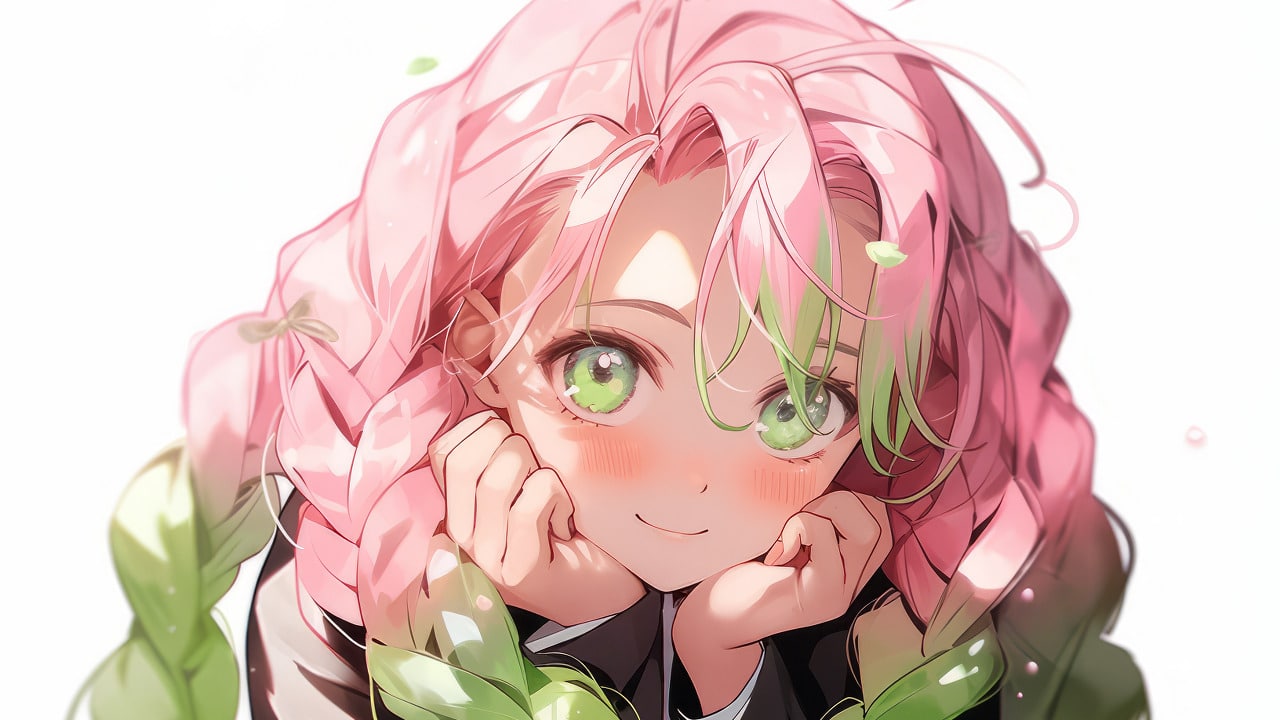
10 Things You Didn't Know About Demon Slayer's Pillar of Love
Demon Slayer (Kimetsu no Yaiba) presents us with the strongest and most elite members of the Demon Hunter Corps, known as the Hashira. Highlighting
Keep Reading